All great artists, all great religious leaders, and all great social reformers have come out of the intensest struggles which they fought bravely, quite frequently in tears and with bleeding hearts
D.T. SUZUKIZen has no business with ideas.
More D.T. Suzuki Quotes
-





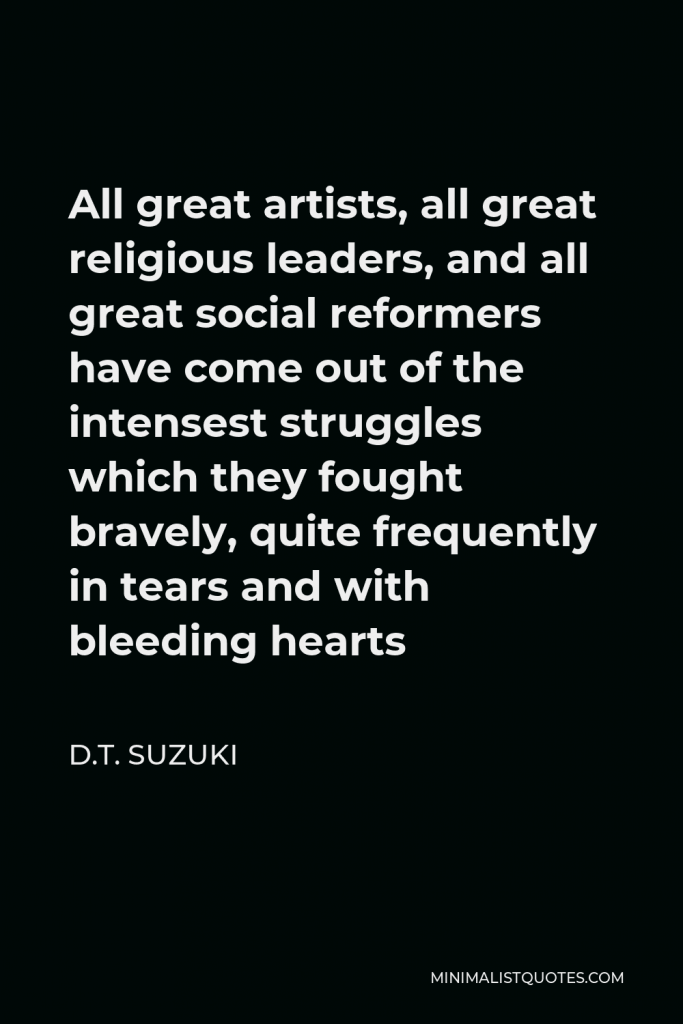

-





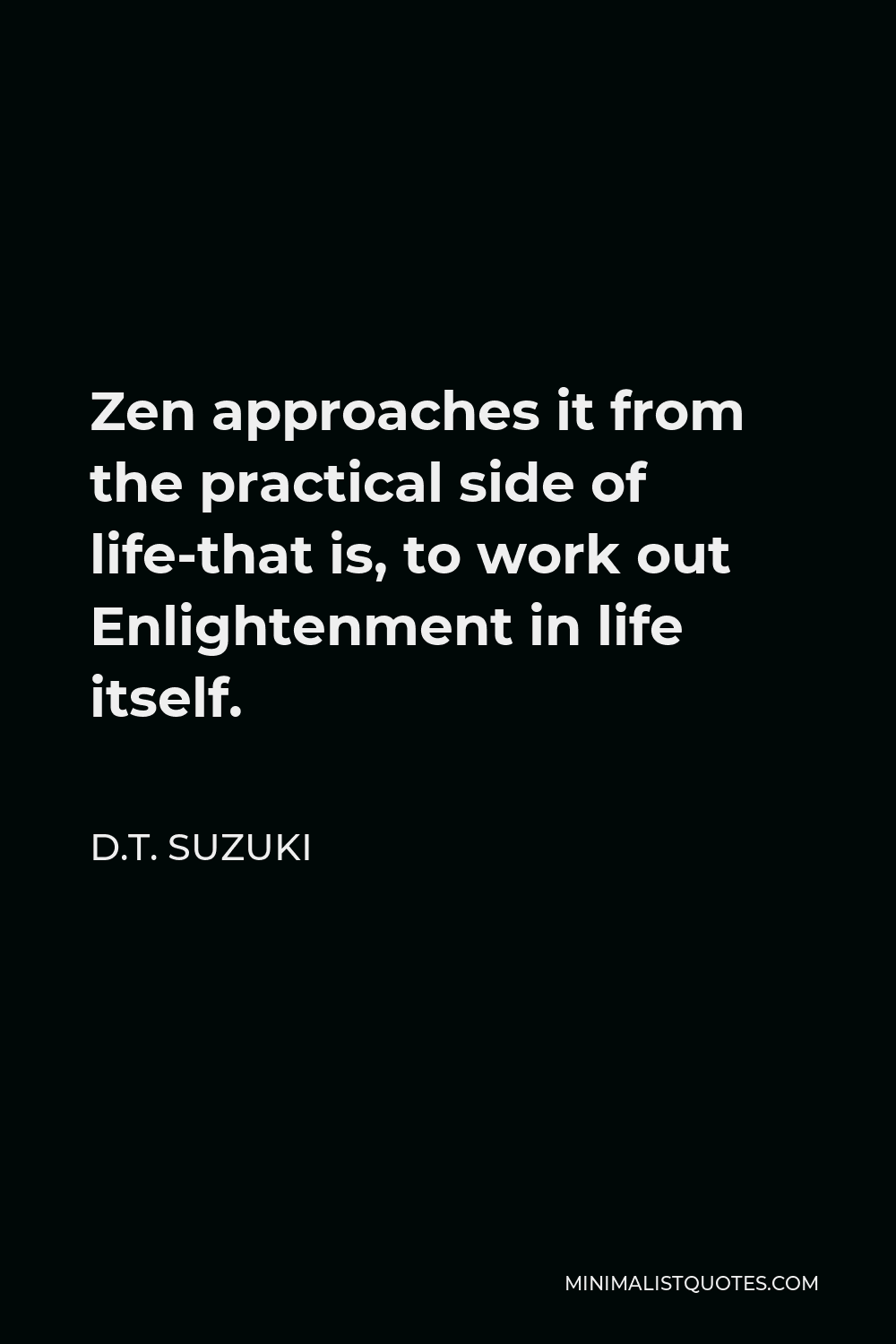
Zen approaches it from the practical side of life-that is, to work out Enlightenment in life itself.
D.T. SUZUKI -





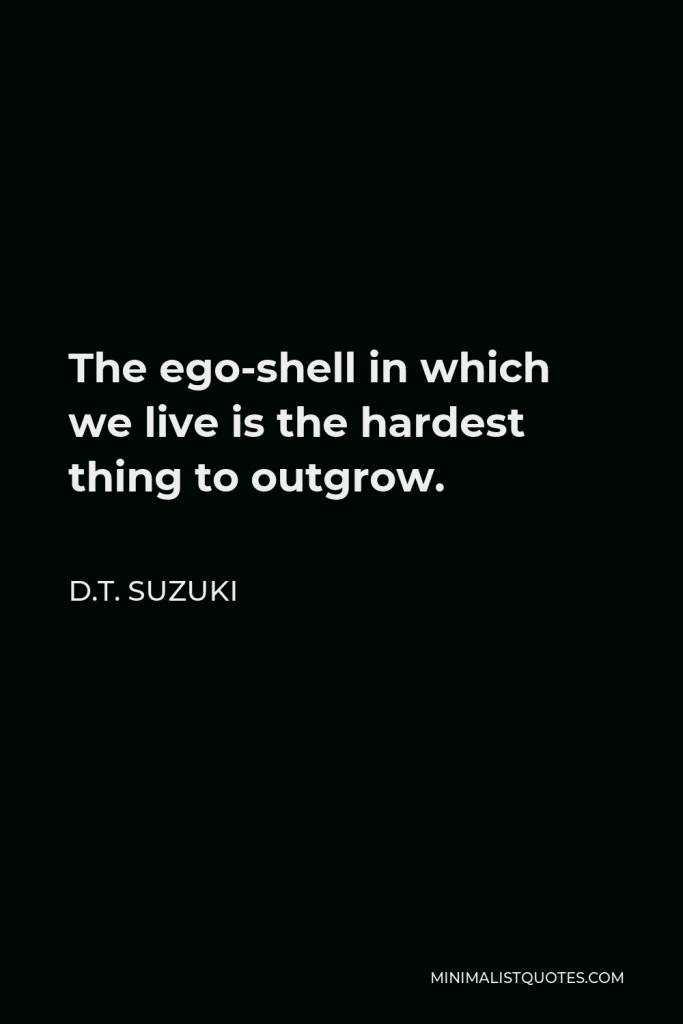

The ego-shell in which we live is the hardest thing to outgrow.
D.T. SUZUKI -





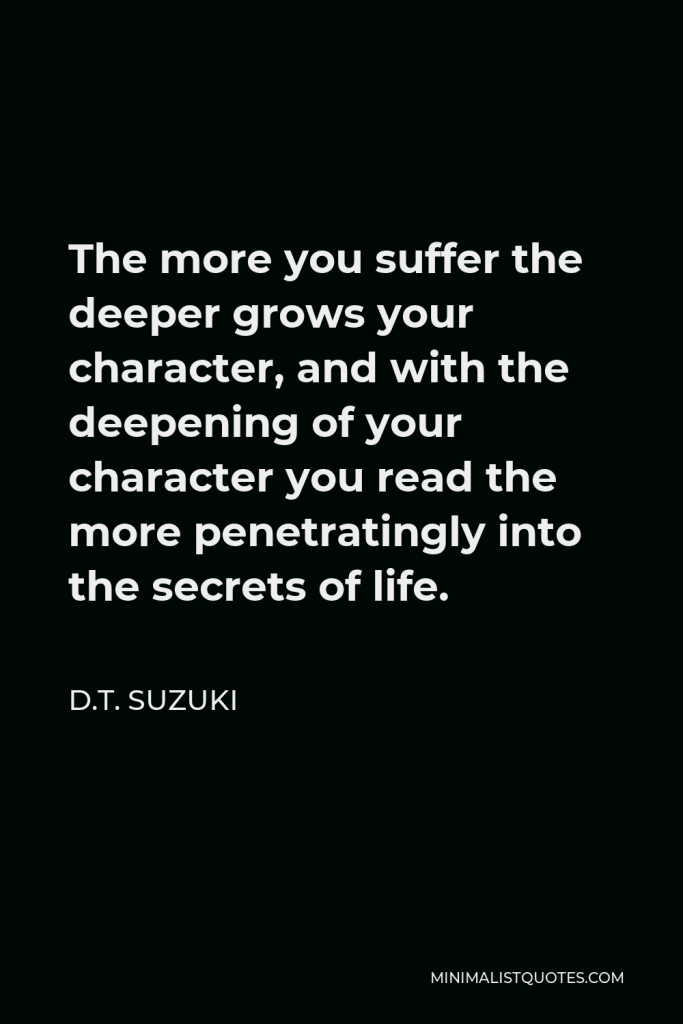

The more you suffer the deeper grows your character, and with the deepening of your character you read the more penetratingly into the secrets of life.
D.T. SUZUKI -





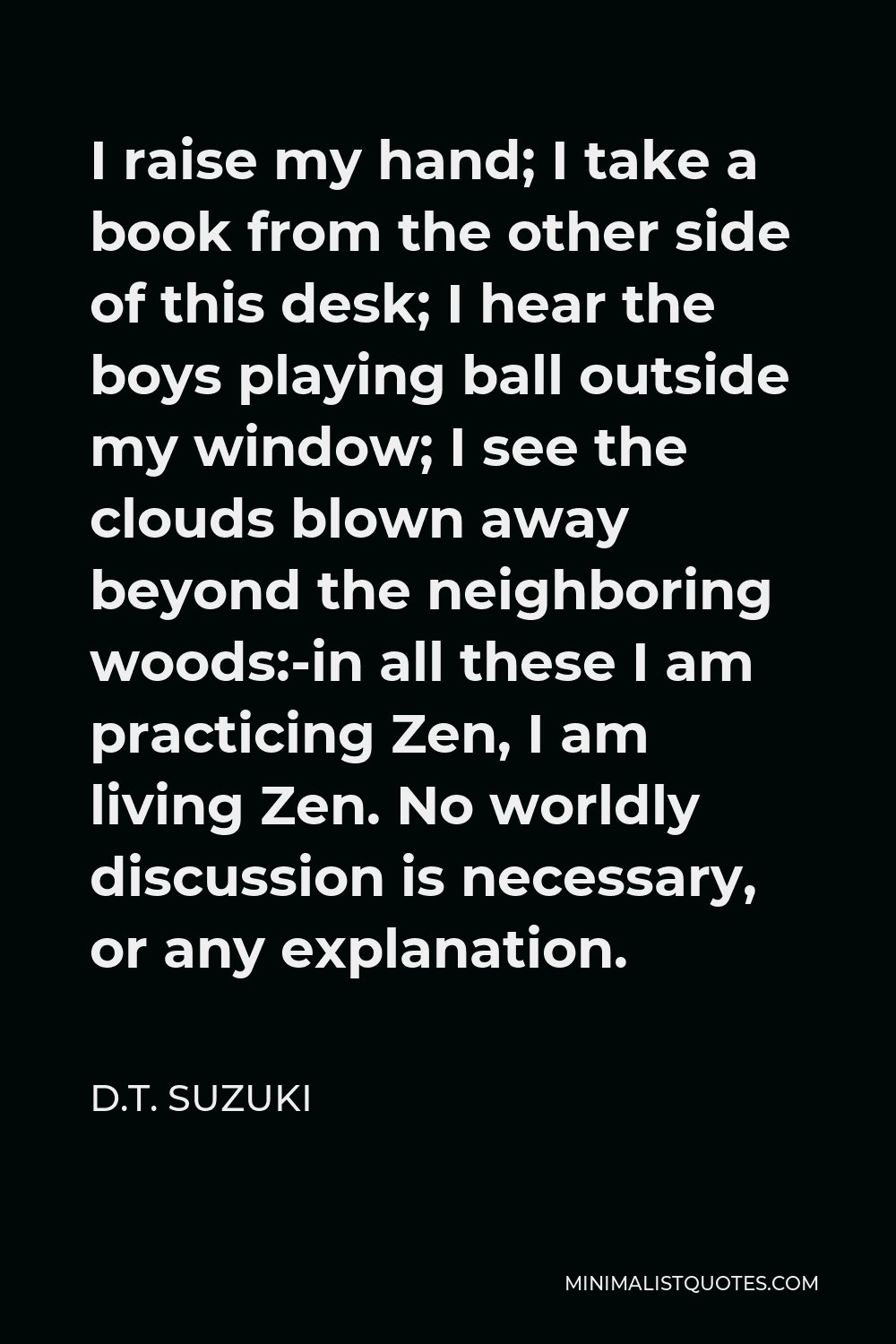
I raise my hand; I take a book from the other side of this desk; I hear the boys playing ball outside my window; I see the clouds blown away beyond the neighboring woods:-in all these I am practicing Zen, I am living Zen. No worldly discussion is necessary, or any explanation.
D.T. SUZUKI -






Dhyana is retaining one’s tranquil state of mind in any circumstance, unfavorable as well as favorable, and not being disturbed or frustrated even when adverse conditions present themselves one after another.
D.T. SUZUKI -





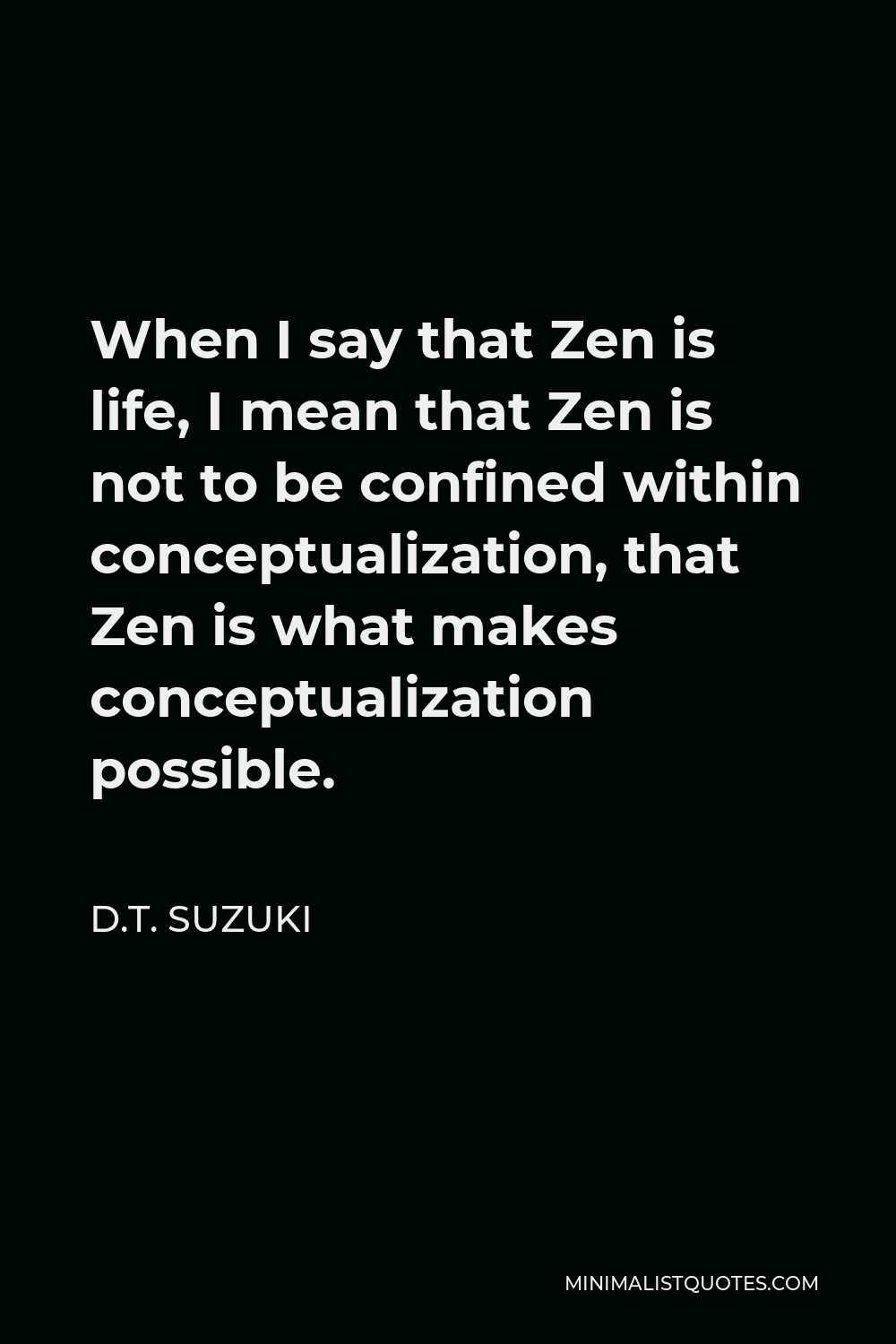
When I say that Zen is life, I mean that Zen is not to be confined within conceptualization, that Zen is what makes conceptualization possible.
D.T. SUZUKI -





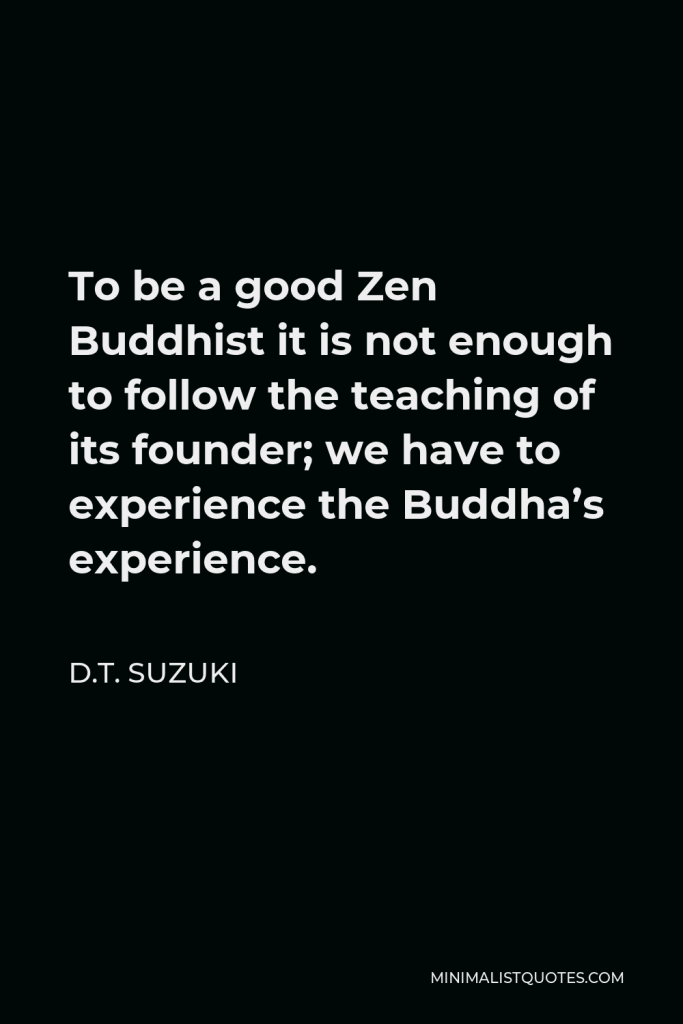

To be a good Zen Buddhist it is not enough to follow the teaching of its founder; we have to experience the Buddha’s experience.
D.T. SUZUKI -





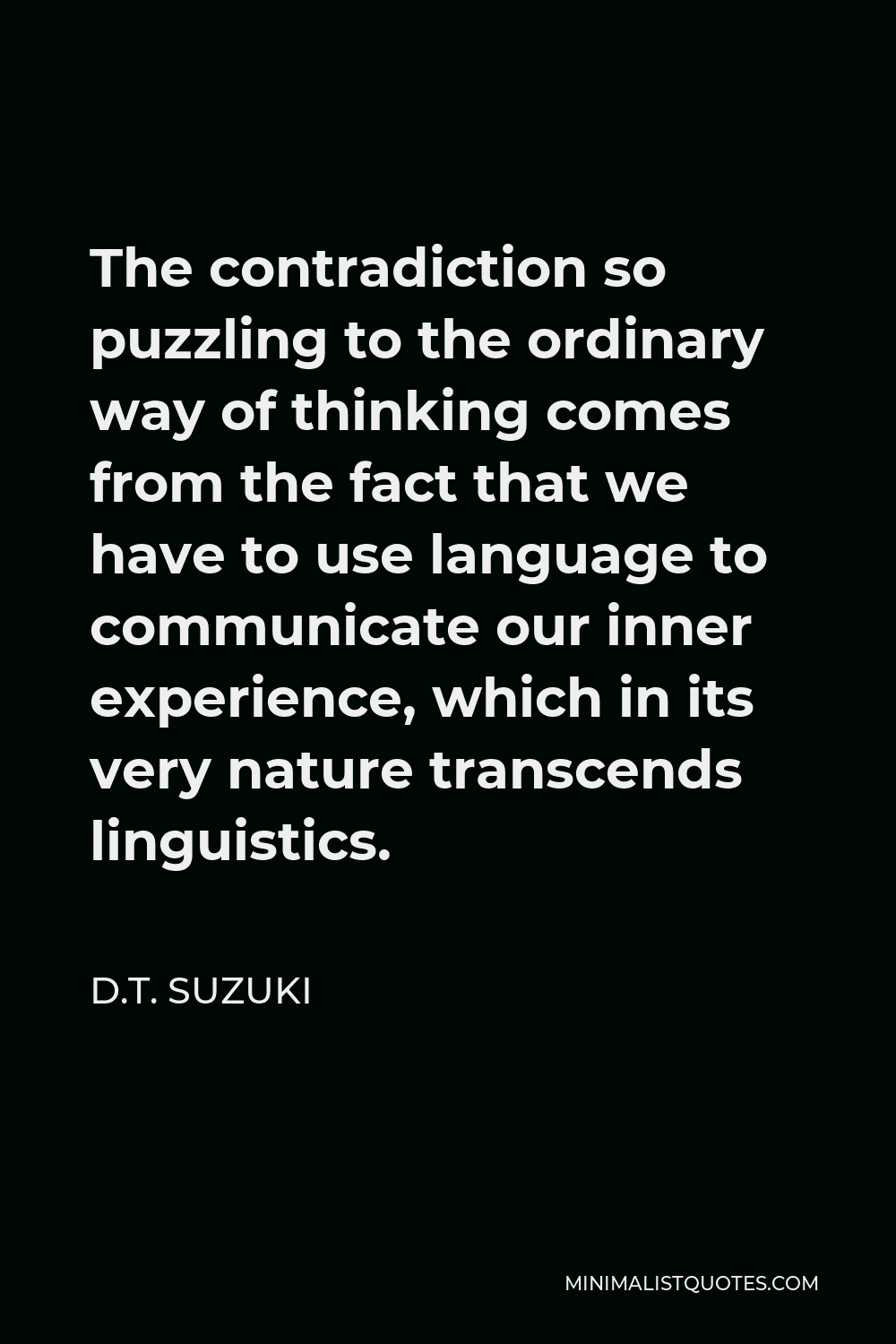
The contradiction so puzzling to the ordinary way of thinking comes from the fact that we have to use language to communicate our inner experience, which in its very nature transcends linguistics.
D.T. SUZUKI -





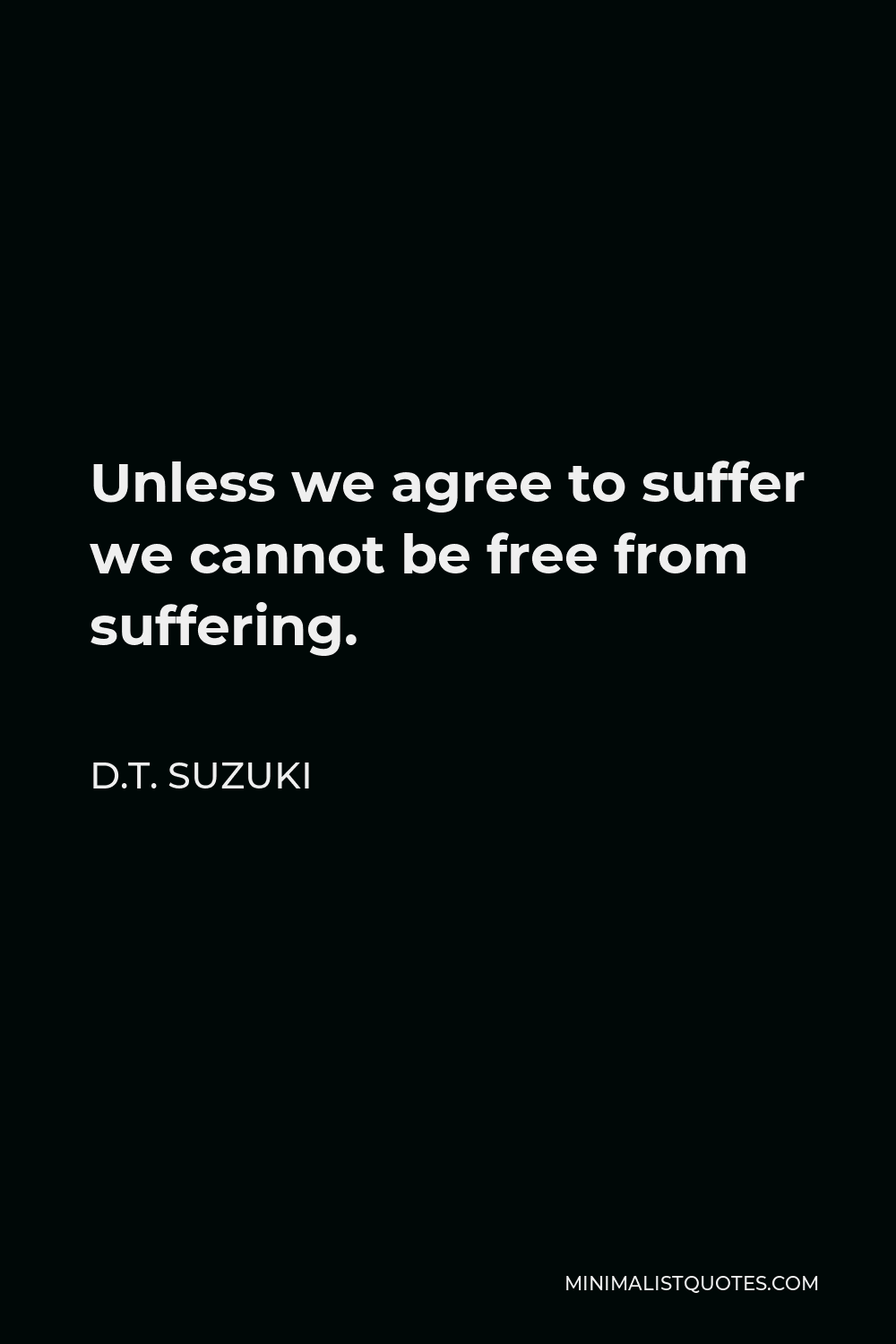
Unless we agree to suffer we cannot be free from suffering.
D.T. SUZUKI -






That’s why I love philosophy: no one wins.
D.T. SUZUKI -





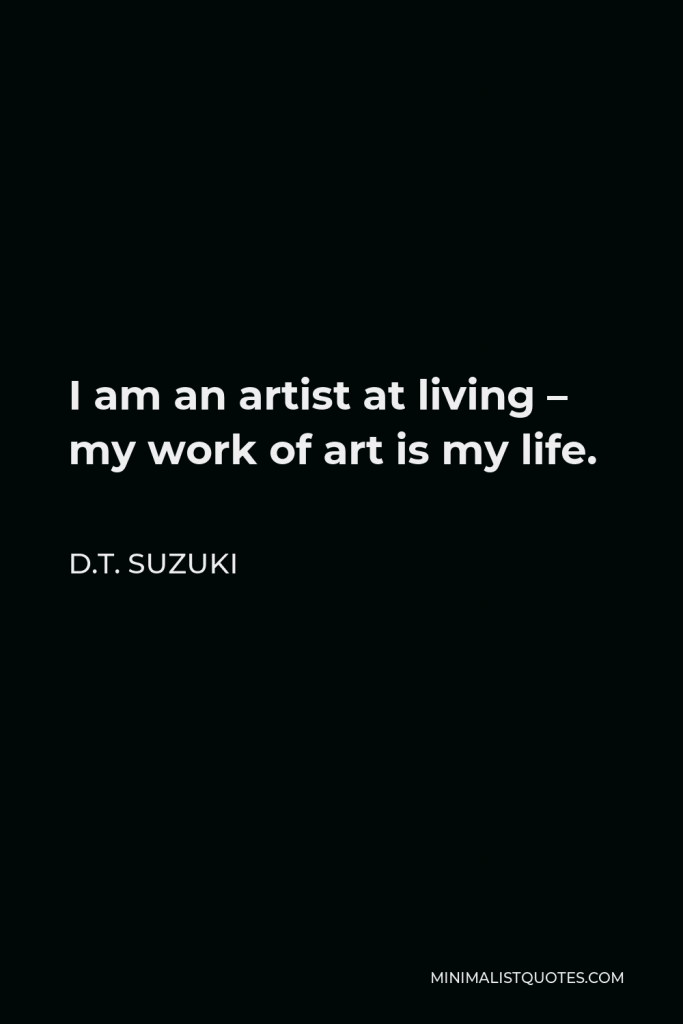

I am an artist at living – my work of art is my life.
D.T. SUZUKI -





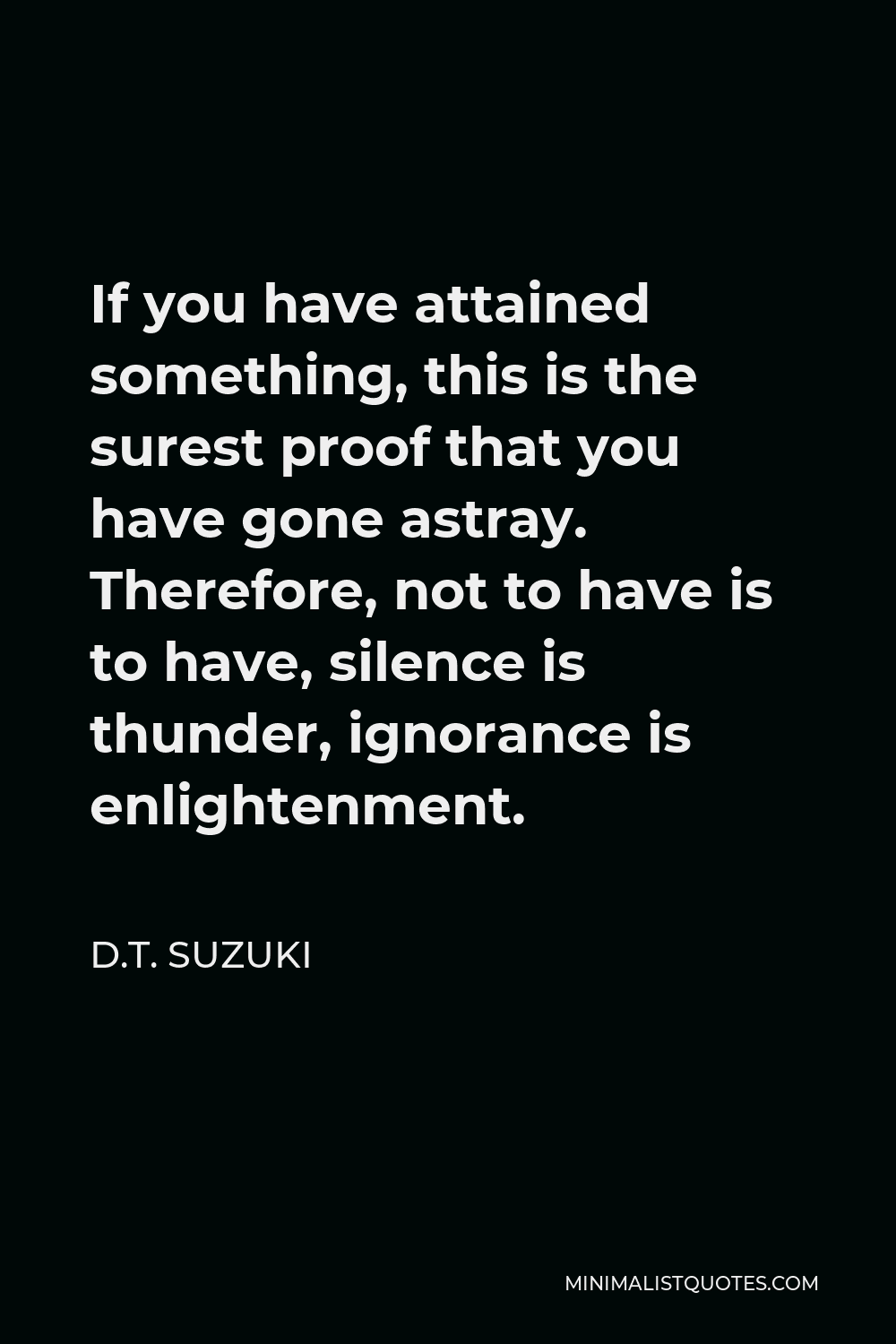
If you have attained something, this is the surest proof that you have gone astray. Therefore, not to have is to have, silence is thunder, ignorance is enlightenment.
D.T. SUZUKI -





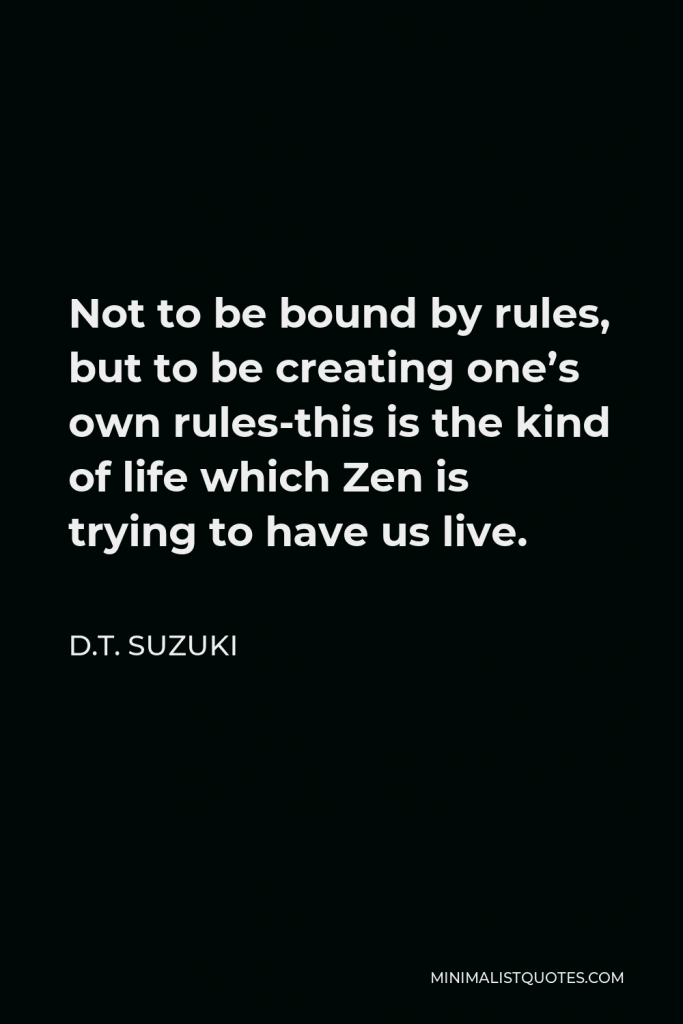

Not to be bound by rules, but to be creating one’s own rules-this is the kind of life which Zen is trying to have us live.
D.T. SUZUKI -





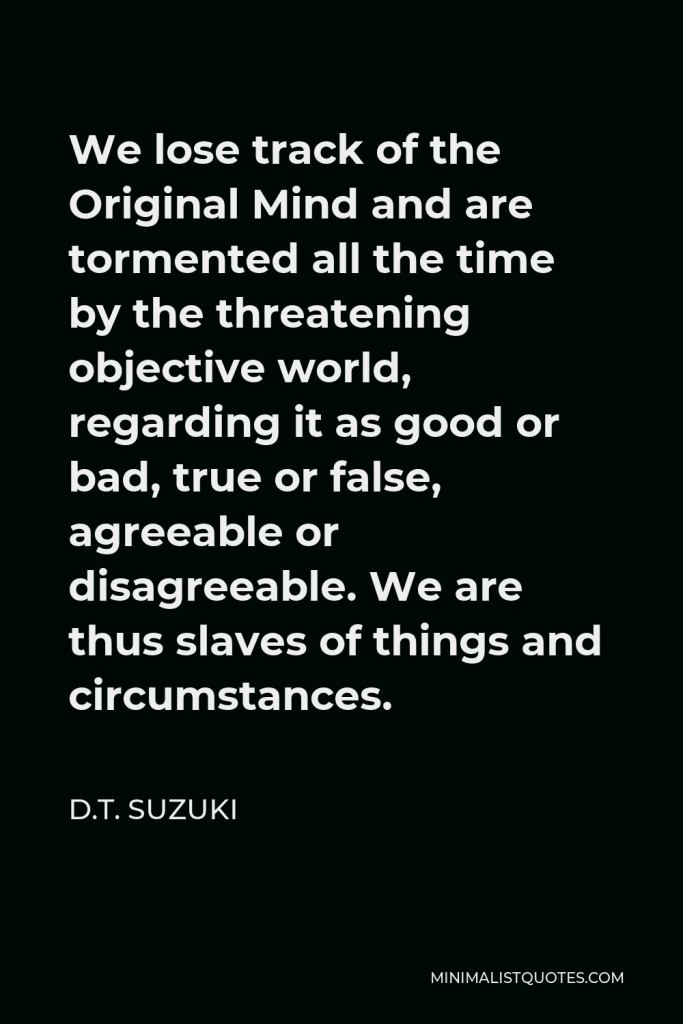

We lose track of the Original Mind and are tormented all the time by the threatening objective world, regarding it as good or bad, true or false, agreeable or disagreeable. We are thus slaves of things and circumstances.
D.T. SUZUKI -





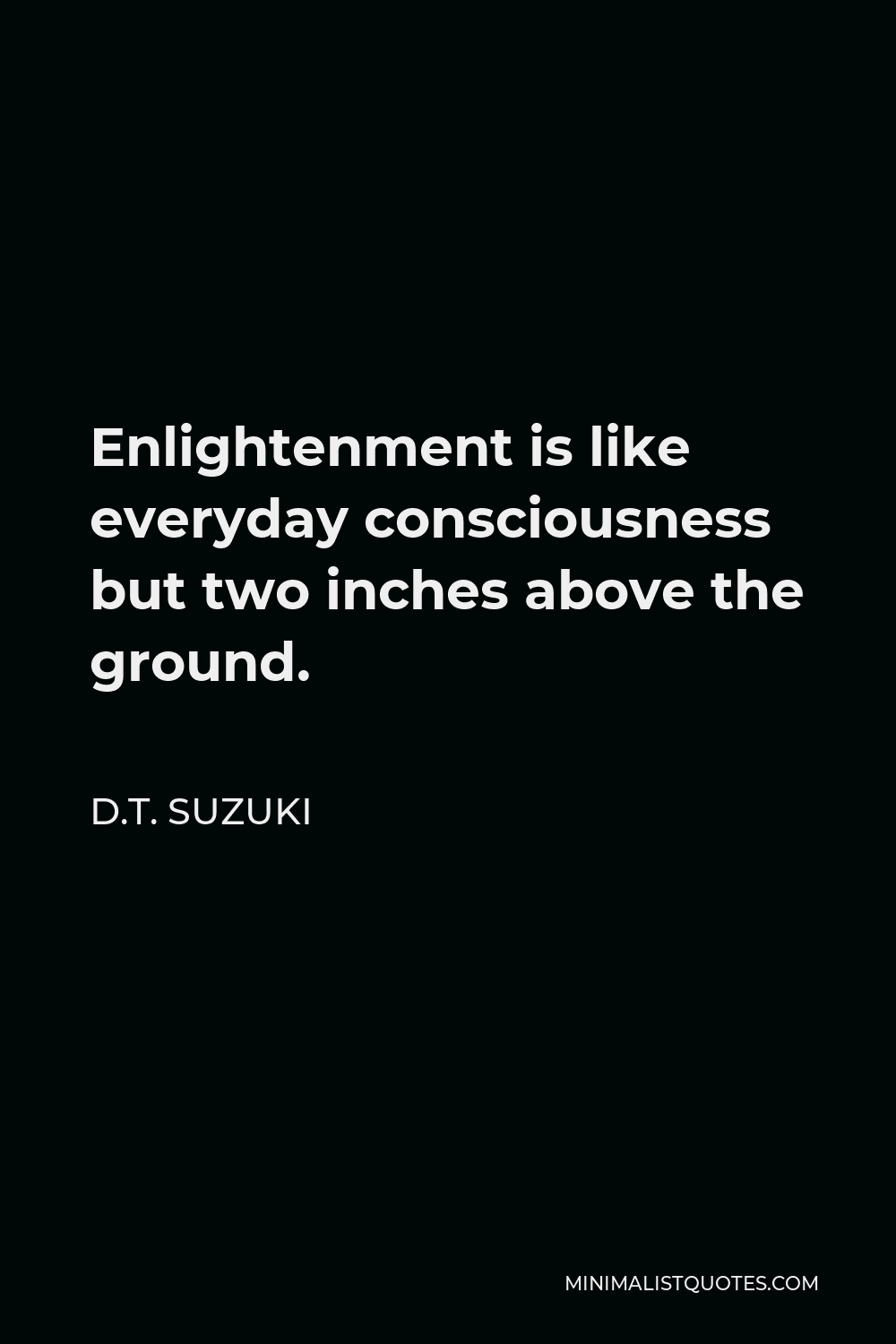
Enlightenment is like everyday consciousness but two inches above the ground.
D.T. SUZUKI







